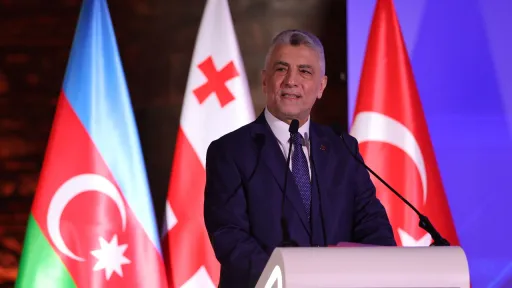By Brian Okoth
The inaugural African Climate Summit held in Kenya’s capital Nairobi from September 4 to 6 has concluded, with the participant nations adopting the Nairobi Declaration.
The document contains several proposals to ensure environmental protection and legislation that would avert the worsening of climate crisis on the continent.
On Wednesday, Kenyan President William Ruto said the Nairobi Declaration “reaffirms our determination and sets the stage for a new phase in the global climate action and sustainable development agenda.”
“It gives the future of our socio-economic transformation a distinct and affirmative African character,” he said.
At least 20 African heads of state and government attended the climate summit in Kenya.
Other notable figures included the UN Secretary General Antonio Guterres, African Union Commission Chairperson Moussa Faki and President of the African Development Bank (ADB) Akinwumi Adesina.
Africa 'warming faster'
The leaders said in their speeches that Africa was warming faster than the rest of the world, and “if unabated, climate change will continue to have adverse impacts on African economies and societies.”
In the Nairobi Declaration, the African states acknowledged that “climate change is the single greatest challenge facing humanity and the single biggest threat to all life on earth.”
“It demands urgent and concerted action from all nations to lower emissions and reduce the concentration of greenhouse gases in the atmosphere,” a part of the declaration said.
The delegates also asked the international community to “recognise that Africa is not historically responsible for global warming, but bears the brunt of its effect, impacting lives, livelihoods and economies.”
Renewable energy resources
The nations also expressed concern that “despite Africa having an estimated 40% of the world’s renewable energy resources, only $60 billion or 2% of $3 trillion renewable energy investments in the last decade have come to Africa.”
But what exactly did the African leaders resolve under the Nairobi Declaration? Below is a summary of the key resolutions passed by the participant nations:
- Developed nations to honour pledge to provide $100 billion in annual climate finance as promised at the Copenhagen conference in 2009.
- Uphold commitments to a fair and accelerated process of phasing down coal, and abolishment of all fossil fuel subsidies.
- Swiftly operationalise the Loss and Damage facility agreed at COP27.
- Call for climate-positive investments that catalyse growth.
- Develop and implement policies, regulations and incentives aimed at attracting local, regional and global investment in green growth.
- Focus on economic development plans on climate-positive growth, including expansion of renewable energy.
- Strengthen actions to halt and reverse biodiversity loss, deforestation and desertification.
- Strengthen continental collaboration to enable and advance green growth.
- Advance green industrialisation across Africa by prioritising energy-intense industries.
- Redouble efforts to boost agricultural yields through sustainable agricultural practices and development of global standards for nature protection.
- Establish a new financing architecture that is responsive to Africa’s needs including debt restructuring and relief.
- Urge world leaders to rally behind the proposal for a global carbon taxation regime including a carbon tax on fossil fuel trade, maritime transport and aviation sectors.
- Establish the Africa Climate Summit as a biennial event convened by the African Union and hosted by AU member states.
- Finalise and implement the African Union Biodiversity Strategy and Action Plan, with the view to realising the 2050 vision of living in harmony with nature.
- Build effective partnerships between Africa and other regions to meet the needs for financial, technical and technological support, and knowledge-sharing for climate change adaptation.
- Accelerate the implementation of the African Union Climate Change and Resilient Development Strategy and Action Plan (2022-2032)
- Take early action to protect lives, livelihoods and assets, and inform long-term decision-making related to climate change risks.
- Promote investments in urban infrastructure to build climate-resilient cities and urban centers.
The participant nations urged the African Union to develop an implementation framework and roadmap for the Nairobi Declaration.























